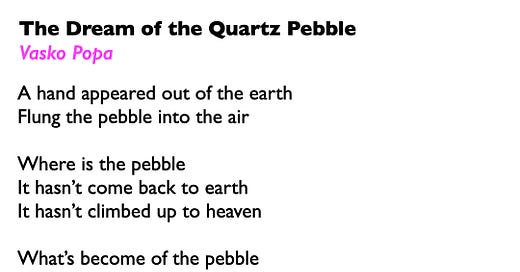There is a great deal of buzz around the “non-human” as an object of study. Anna Tsing’s celebrated work The Mushroom at the end of the world, uses the Matsutake mushroom, a kind of fungal growth that only grows in human disturbed forests, as a frame to speak about precarity, environmental degradation, and the devastation wrought by the many strands of a world defined by capital. Her entry point and consistent method, however, relies on a rejection of anthropocentrism:
“To walk attentively through a forest, even a damaged one, is to be caught by the abundance of life: ancient and new; underfoot and reaching into the light. But how does one tell the life of the forest? We might begin by looking for drama and adventure beyond the activities of humans. Yet we are not used to reading stories without human heroes…. Can I show landscape as the protagonist of an adventure in which humans are only one kind of participant?”
Hold this thought, as I introduce the author of today’s guest post, Aakriti Kuntal. Aakriti writes divine poetry, casting a spell with imagery that leaps right out of the page and into the mind’s eye. I am quite smitten by the unconventional way she uses language, and this is why I was particularly interested to see what she has to say about poetry that is dear to her. Poets writing about poetry, without necessarily slipping into academese is a form of literary criticism that I am very partial to, and Aakriti’s thoughts on Vasko Popa’s poem fall neatly into this category.
The poem ‘The Dream of the Quartz Pebble’ draws the reader, almost immediately, into another dimension; a dimension that pivots around the word ‘pebble’. The reader finds herself juggling the surreal borders and volumes of a most common place object— the pebble, and the surrounding words which seem to induce a dream-like quality.
In Popa’s poems under the umbrella of ‘The Quartz Pebble’, the Serbian poet has somehow enshrined the pebble with a volume and breath of its own. The metaphor is not just a metaphor for it doesn’t map to a single, fixed meaning but rather revolves around a map of associations. This takes into account the material aspects of a pebble but shapes it into metaphysical properties. Hence, an entity is born. This new entity reigns supreme. It is a world just like in the poem, an entity that goes beyond the page and dares to wear garments and identities of all sorts.
A pebble invokes a most distinct imagery, distinct in the feeling it evokes. One meets a feverishly cold touch, a stubborn closeness as if the entire world had shut itself. A pebble, dense in its nature, invokes the feeling of all matter being condensed. It seems to be infinity trapped in itself. This pebble then is an entity almost larger than life. What is a pebble? How does it belong in a poem? A pebble is warm interiors guarded by a strong, cold exterior. All the material aspects also translate into its spiritual properties.
One is struck by the insistent imagery and God-like power of a ‘pebble’. In poetry, one finds oneself smitten with certain words, words that tend to extend themselves into corridors beyond, words that start to mould the very nature of one’s existence, words that slowly become entire languages in themselves, metaphors that absorb entire spaces.
Here, the pebble is very much like a ‘self’ that is most stubborn. This ‘self’ remains; it continues and is not tainted or morphed by life’s flickering dots. The pebble maintains its energy, its body, its soul— neither mortality, not the promise of paradise, neither borrowed beauty nor insistent death seem to take away the pebble’s own breath. Its breath sustains itself; its breath is its individuality, its essence, its terrifyingly beautiful capacity to be, a world amidst worlds.
You can find her poem ‘Skirt on a Cliff’, published in The Night Heron Barks, here.
I hope you are doing well, and this winter is kind. If you like what you read, do consider ‘buying me a coffee’.
Note: Those, not in India, who’d like to support the work I do at Poetly, write to me - poetly@pm.me.
If you wanna share this post…



